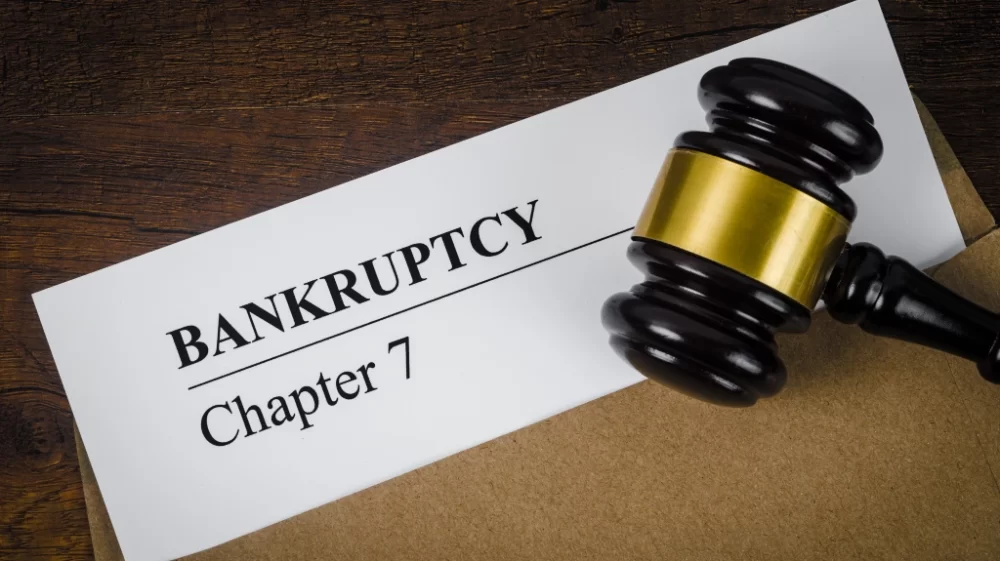
- Understanding Chapter 7 Bankruptcy and Its Impact on Creditors
- Creditor Rights in Chapter 7 Bankruptcy
- Filing Claims and Navigating the Bankruptcy Process
- Strategies for Maximizing Debt Recovery
- Real-Life Examples of Creditor Experience
- How ESPLawyers Can Assist Creditors in Bankruptcy Cases
Understanding Chapter 7 Bankruptcy and Its Impact on Creditors
Chapter 7 bankruptcy is often described as liquidation bankruptcy, where a debtor’s non-exempt assets are sold to pay off creditors. For creditors, navigating Chapter 7 bankruptcy can feel daunting because it affects how and when debts are repaid, and in many cases, creditors receive only a portion of what they are owed—or sometimes nothing at all.
Understanding the fundamental nature of Chapter 7 bankruptcy helps creditors prepare for the process and recognize their rights. Unlike Chapter 13 or Chapter 11, Chapter 7 generally results in the debtor’s assets being distributed quickly to creditors, but only after the bankruptcy trustee’s expenses and priority claims are satisfied.
The role of the bankruptcy trustee
The bankruptcy trustee acts as a neutral party who oversees the liquidation process, collects and sells the debtor’s non-exempt assets, and distributes the proceeds to creditors based on priority rules established by bankruptcy law. Creditors must work through the trustee to assert their claims and understand the timing and amount of possible payments.
Creditor Rights in Chapter 7 Bankruptcy
Creditors possess specific rights designed to protect their interests during the Chapter 7 process. One of the most critical rights is the ability to file a proof of claim, which formally notifies the court and trustee of the amount the creditor believes is owed.
Additionally, creditors have the right to:
- Attend the debtor’s 341 meeting (meeting of creditors) to ask questions and gather information.
- Object to the debtor’s discharge if there is evidence of fraud or misconduct.
- Participate in any proceedings involving the sale of assets or disputes over claims.
Priority of claims and unsecured creditors
It’s important for creditors to understand that not all debts are treated equally. Secured creditors often have a better chance of recovering debts since their claims are backed by collateral. Unsecured creditors, such as suppliers or credit card companies, typically receive payments only after secured and priority claims are satisfied, making their recovery less certain.
Filing Claims and Navigating the Bankruptcy Process
Filing a proof of claim is a critical step for creditors to establish their right to repayment. This document must be submitted by a specific deadline, called the claims bar date, or the creditor risks losing the ability to recover any funds.
When filing a claim, it’s essential to provide accurate documentation supporting the amount owed. This might include contracts, invoices, or promissory notes. Once claims are filed, creditors should monitor the bankruptcy case closely to stay informed about asset sales and distributions.
Monitoring and responding during the case
Creditors should actively engage by attending hearings and the 341 meeting, where the debtor answers questions under oath. This involvement can uncover hidden assets or fraudulent transfers, which could improve the creditor’s recovery.
Strategies for Maximizing Debt Recovery
While Chapter 7 bankruptcy often limits the amount a creditor can recover, certain strategies can improve outcomes:
1. Early and accurate claim filing
Ensuring the claim is filed promptly and with complete documentation prevents disqualification and secures a place in the distribution queue.
2. Objecting to improper discharges
If a creditor suspects the debtor is attempting to discharge debts fraudulently, timely objections can keep those debts collectible.
3. Identifying non-exempt assets
Working with professionals to detect assets that the debtor cannot exempt ensures more funds are available for creditors.
4. Utilizing legal expertise
Enlisting experienced bankruptcy attorneys helps navigate complex rules, negotiate with trustees, and safeguard creditor interests.
Real-Life Examples of Creditor Experience
Consider the case of a supplier owed a significant sum by a small business that filed Chapter 7 bankruptcy unexpectedly. The supplier initially feared a total loss. However, by promptly filing a proof of claim and participating in the 341 meeting, they uncovered a hidden asset in the form of a company vehicle that was not exempted. The asset’s sale increased the payout to unsecured creditors, improving their recovery.
In another example, a creditor objected to the debtor’s discharge due to discovered falsified records. This objection delayed the discharge and resulted in partial repayment of the debt that would otherwise have been wiped out.
How ESPLawyers Can Assist Creditors in Bankruptcy Cases
Dealing with the complexities of navigating Chapter 7 bankruptcy as a creditor requires expert guidance. ESPLawyers provides specialized legal assistance to help creditors assert their rights, file claims accurately, and explore all available avenues to maximize debt recovery.
From early case evaluation to representing creditors at hearings, ESPLawyers offers practical, personalized support that can make a significant difference in outcomes. For anyone facing the challenges of creditor involvement in bankruptcy, consulting ESPLawyers can be a decisive step toward protecting your financial interests.








